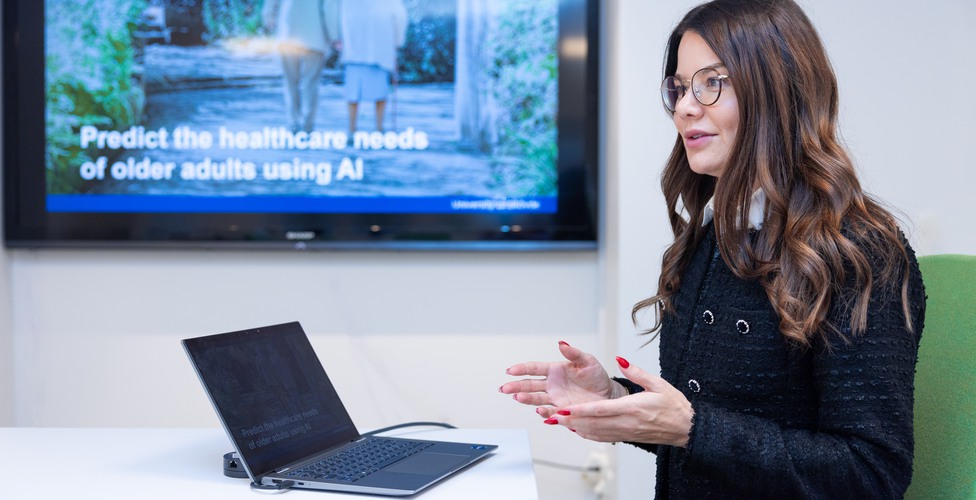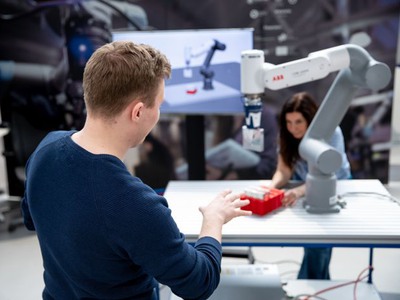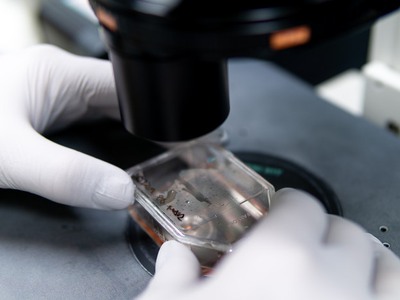A new EU-funded research project aims to improve care for older people by using AI to predict their care needs. By collecting data from individuals in their homes, the project will enable the early detection of health issues, allowing for swift interventions that reduce hospital admissions, relieve pressure on both patients and healthcare staff, and prevent costly emergency care and aftercare.

Healthcare faces significant challenges and needs to adopt a more proactive and preventive approach, says Hanife Rexhepi, Senior Lecturer in Information Technology at the University of Skövde.
In a new research project, researchers from Sweden, Norway, and Spain will use AI to enhance care for older individuals by identifying early signs of health problems. They will achieve this through wearable technology that collects real-time data within the home environment.
The project aims to improve the health and well-being of older people by detecting early health issues and alerting healthcare professionals for prompt interventions, thereby reducing the severity of illnesses. That is, to detect care needs before they occur.
"Identifying health decline at an early stage often leads to more effective and less invasive treatments, which can have a significant positive impact on the quality of life for older individuals," says Hanife Rexhepi, senior lecturer in informatics at the University of Skövde and the leader of the university’s involvement in the project.
Interdisciplinary Project Across Borders
The project is a collaboration between researchers at the University of Skövde (Sweden), the Norwegian University of Science and Technology (NTNU), and the Biodonostia Health Research Institute and Mondragon University in Spain. Aslak Steinsbekk is a professor of behavioural sciences in medicine and the project leader. He explains that implementing such a system is challenging, and therefore, the researchers will also investigate how cultural, practical, and organisational differences between countries may affect implementation.
"Introducing such AI solutions is complex because the quality of data and access to data vary across regions, care levels, and countries. Therefore, knowledge is needed about the best solutions to create guidelines that will help healthcare across Europe use AI effectively," says Aslak Steinsbekk.
The project team will work interdisciplinarily, with each member bringing their expertise. The Spanish team will lead the effort to collect patient data from the three countries and evaluate the impact of the developed AI solution, while the Norwegian team will be responsible for developing and training the AI algorithms and overseeing the project’s progress.
The University of Skövde is responsible for the implementation
The Swedish team is responsible for the implementation of the AI solution. This involves, among other things, analysing how the solution can best become part of healthcare staff workflows and developing concrete recommendations for its use. The goal is to create a more proactive approach in healthcare, allowing patients to actively participate in their own care. The team is also responsible for disseminating the research findings to support broader adoption.
"Healthcare faces significant challenges in providing timely and high-quality care to a growing elderly population with complex care needs, all while the workforce is shrinking. To meet the rising demand, European healthcare systems need to adopt a more proactive and preventive strategy through the early detection of health decline and rapid interventions. Our project aligns well with this challenge," says Hanife Rexhepi.
More About the Project
The project is expected to last three years, starting in November 2024, and is funded by the EU Commission, Forte, Forskningsrådet, and Departamento de Salud Gobierno Vasco.
For more information, visit the project website Predicting care needs of older adults in the healthcare system through AI-enabled analysis of patient monitoring data.



